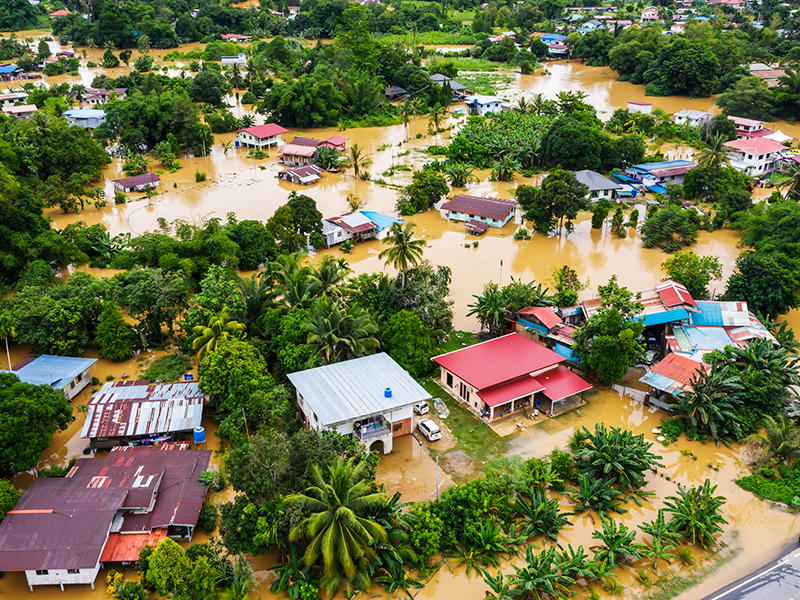The Challenge
In industrial regions of southern China, water pollution is an increasingly serious problem. According to the Nanfang Daily, 12.62 billion tons of polluted materials and 8.3 billion tons of wastewater were discharged into the waters off Guangdong in 2007—up 60 percent from five years ago. Perhaps most distressing, according to Guangdong officials, more than 40 percent of the province’s rural people do not have access to safe drinking water.
In southern China, the apparel and textile industry’s discharge of wastewater containing reactive dyes is a serious environmental challenge contributing to the problem of polluted water. The load is characterized by high color content, with suspended solids, salts, nutrients, and toxic substances such as heavy metals and chlorinated organic compounds that pose significant risks to human health, including exposure to constituents such as chloride, nitrate, nitrite, and sulfate. In addition, the effluents discharged lead to serious pollution of surface water sources and groundwater, inhibiting biological processes and the productivity of rivers and streams.
Our Strategy
In January 2008, BSR launched the China Water Initiative to determine how the private sector can help reverse the degradation of southern China’s water resources. Our aim is to create a network of organizations working toward the same objective—to protect the region’s natural waterways.
To do this, BSR built partnerships with organizations like the Center for Water Research at Beijing University, the Institute for Public and Environmental Affairs, the China Environment Forum, and the Association for Sustainable and Responsible Investment in Asia, which already are tackling this challenge.
Our Impact
Based on a series of factory visits in southern China, BSR identified a range of pressures on factory managers that impact the management of water resources and wastewater discharge. These include low worker retention rates, international competition, and rising prices for their material inputs.
After we presented these findings at a forum in Guangzhou, BSR incorporated the information into a training curriculum designed for factory managers. BSR is applying its expertise as a partner with brands and suppliers to provide best practices, tools, and training to factory managers at textile mills, dyeing facilities, and other finishing mills. Ultimately, this will help factory managers improve their environmental performance related to wastewater management, water and energy use, and efficient use of materials and chemicals.
Let’s talk about how BSR can help you to transform your business and achieve your sustainability goals.








